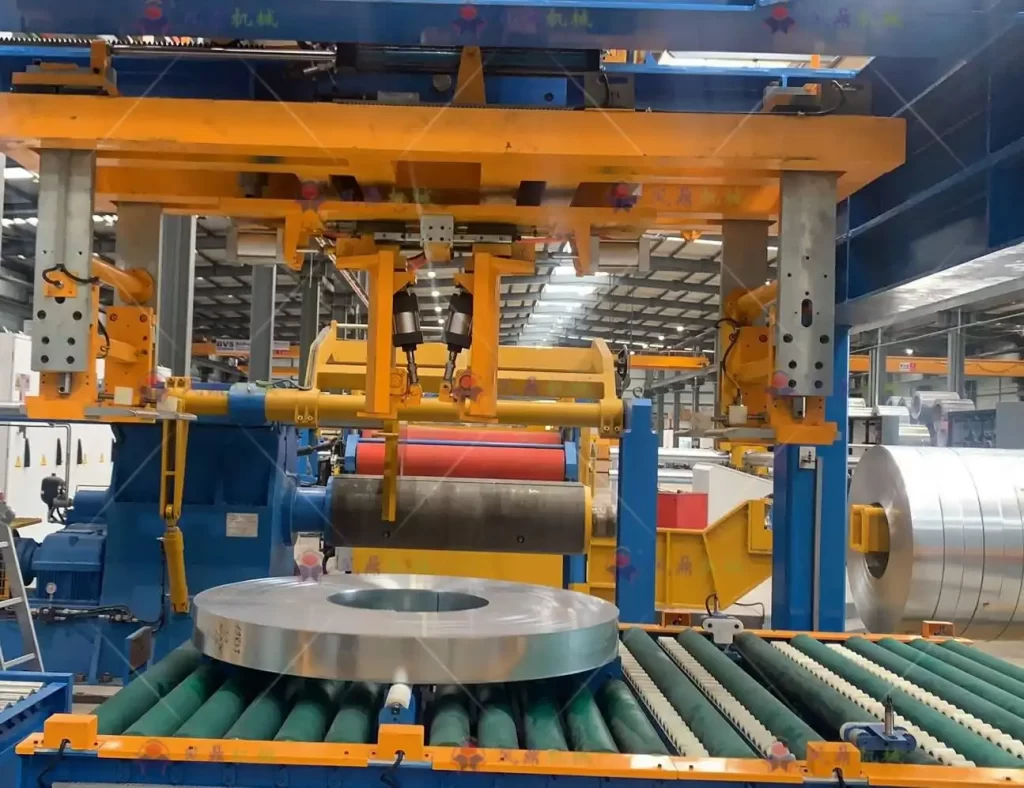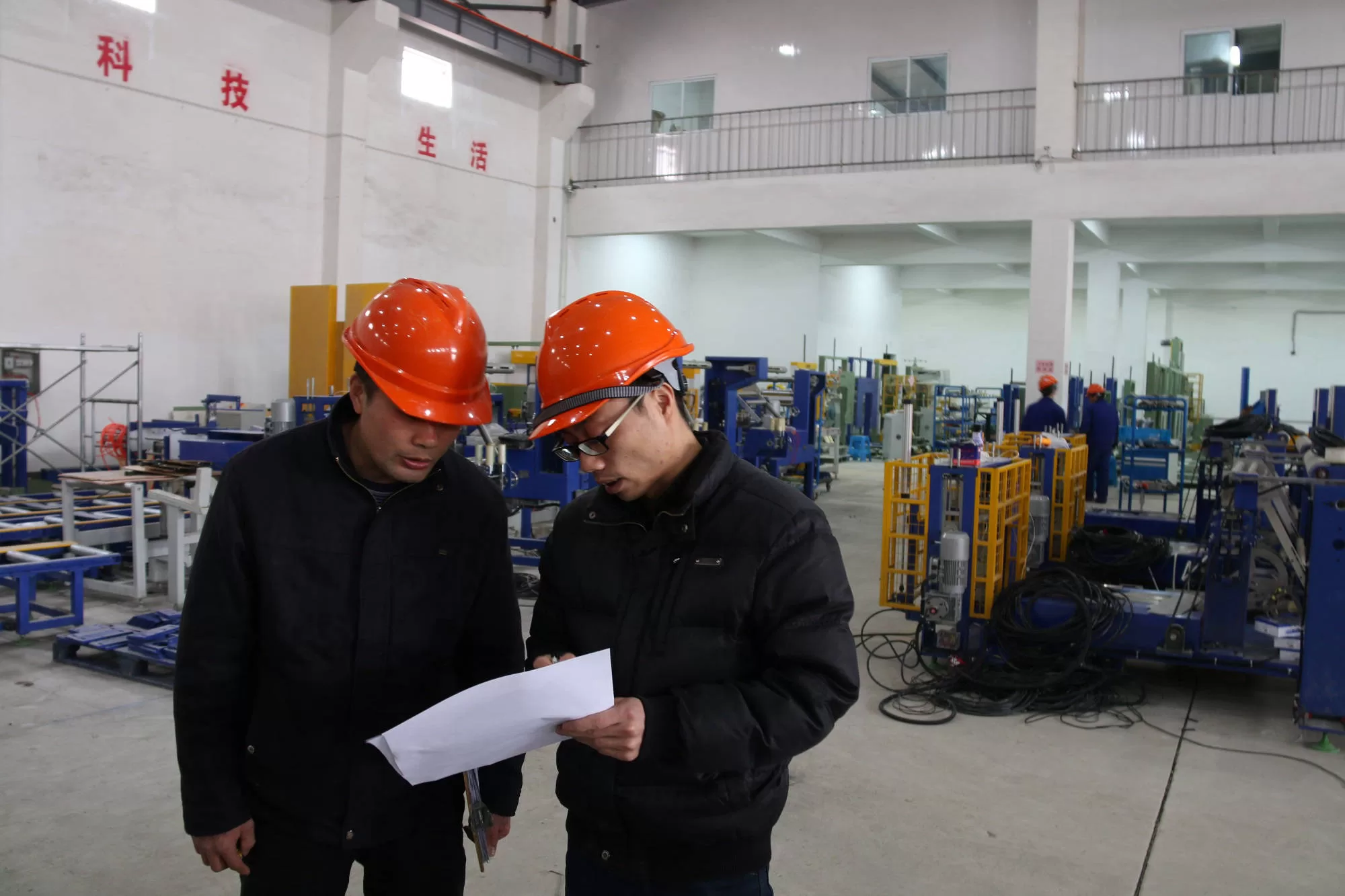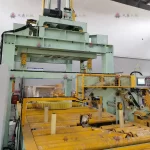Meeting International Packaging Standards with Automated Steel Coil Packing Systems
- Meeting International Packaging Standards with Automated Steel Coil Packing Systems
- 1. The Importance of International Packaging Standards
- 2. How Automated Steel Coil Packing Systems Ensure Compliance
- 3. Key Features of Automated Steel Coil Packing Systems
- 4. Meeting Environmental Standards with Automated Systems
- 5. Enhancing Supply Chain Efficiency with Automated Packaging
- 6. Cost Savings and ROI of Automated Steel Coil Packing Systems
- 7. Future Trends in Automated Steel Coil Packing Systems
- 8. Conclusion: Investing in Automated Systems to Meet International Standards

In the globalized world of manufacturing, standardization plays a critical role in ensuring quality, safety, and efficiency across industries. When it comes to steel coil packaging, adhering to international packaging standards is not just a regulatory requirement but also a competitive advantage. The emergence of automated steel coil packing systems offers manufacturers an efficient and reliable way to meet these global standards while enhancing operational efficiency. In this article, we will delve into how automated packing systems align with international packaging standards and the benefits they provide for manufacturers.
1. The Importance of International Packaging Standards
International packaging standards such as ISO 9001 and ISO 14001 are designed to maintain quality consistency and environmental responsibility across industries. For the steel coil sector, these standards ensure that products are packaged in a way that maintains their integrity during transportation and storage. Packaging plays a crucial role in protecting steel coils from corrosion, physical damage, and contamination. Compliance with these standards not only safeguards the quality of the products but also improves customer trust and satisfaction.
When a manufacturer complies with international packaging standards, they demonstrate a commitment to quality, safety, and environmental responsibility. This can be especially important when exporting steel coils to countries with strict import regulations. Failing to meet these standards can result in shipment rejections, costly delays, or penalties. Automated steel coil packing systems can help businesses avoid such pitfalls by ensuring packaging consistency and reliability.
2. How Automated Steel Coil Packing Systems Ensure Compliance
Automated steel coil packing systems are designed with the precision required to meet international standards. These systems are programmed to handle every step of the packing process, from strapping to wrapping, with minimal human intervention. By leveraging technology, these machines ensure consistent quality, reduce human error, and increase throughput.
One of the key features of automated packing systems is their ability to apply consistent pressure during strapping and wrapping. This ensures that the packaging materials are applied uniformly across the entire coil, which is essential for maintaining the integrity of the packaging. Furthermore, automated systems are equipped with sensors and quality control mechanisms that monitor every step of the process, ensuring that each coil is packed according to the specific requirements of international standards.
Additionally, automated systems can be easily configured to meet the diverse requirements of different regions and industries. Whether a manufacturer needs to comply with ISO, ASTM, or DIN standards, automated systems offer the flexibility to adjust packaging parameters to meet specific needs. This adaptability ensures that manufacturers can remain compliant no matter where their products are shipped.
3. Key Features of Automated Steel Coil Packing Systems
Automated steel coil packing systems offer a range of features that make them indispensable for manufacturers aiming to meet international standards. Some of the most important features include:
- Customizable wrapping and strapping options: Automated systems allow for the use of different types of wrapping materials, including stretch film, VCI paper, and PE film, depending on the product’s protection needs.
- Precision and consistency: These systems are programmed to apply consistent pressure and tension during the strapping and wrapping processes, ensuring that each coil is securely packaged.
- Automated quality checks: Integrated sensors and control systems ensure that every coil meets predefined quality standards. If a defect is detected, the system can automatically alert operators or halt the process to prevent defective packaging.
- High throughput: Automated packing systems can pack coils at a significantly faster rate than manual methods. This not only increases efficiency but also helps manufacturers meet tight production schedules without compromising on quality.
- Reduced labor costs: Automation reduces the need for manual labor, helping businesses save on labor costs while reducing the risk of human error.
4. Meeting Environmental Standards with Automated Systems
In addition to quality and safety standards, manufacturers must also adhere to environmental standards such as ISO 14001, which focuses on environmental management systems. Automated steel coil packing systems can help companies meet these standards by optimizing the use of packaging materials and minimizing waste.
For instance, automated systems can be programmed to use the exact amount of stretch film or wrapping material needed to secure a coil, reducing material waste. Furthermore, these systems can be integrated with recyclable materials, helping manufacturers reduce their environmental footprint. By reducing waste and improving material efficiency, automated packing systems contribute to more sustainable packaging practices, helping businesses meet both regulatory requirements and their own sustainability goals.
Additionally, some automated systems are designed to use environmentally friendly packaging materials such as biodegradable films or reusable straps, further enhancing a company’s ability to comply with global environmental standards. As environmental regulations become more stringent worldwide, automated systems provide a future-proof solution for manufacturers looking to stay ahead of the curve.

Get Your Best Solution !
5. Enhancing Supply Chain Efficiency with Automated Packaging
The benefits of automated steel coil packing systems extend beyond compliance with international standards. These systems can significantly enhance overall supply chain efficiency, helping manufacturers stay competitive in a global market.
Automated systems streamline the packaging process, allowing for faster and more efficient operations. This increased speed means that manufacturers can meet high demand while maintaining product quality and compliance. Furthermore, automation reduces the likelihood of errors, such as improper packaging or incorrect labeling, which can lead to delays and additional costs. By eliminating these inefficiencies, automated systems help manufacturers reduce lead times and improve customer satisfaction.
Moreover, automated systems provide real-time data tracking and reporting capabilities, allowing manufacturers to monitor packaging performance and make adjustments as needed. This data can be used to identify bottlenecks in the process, optimize production schedules, and ensure that the packaging process aligns with international standards.
6. Cost Savings and ROI of Automated Steel Coil Packing Systems
While the initial investment in an automated steel coil packing system may seem significant, the long-term cost savings often outweigh the upfront costs. By automating the packaging process, manufacturers can reduce labor costs, minimize material waste, and avoid costly rework or product damage due to improper packaging. This leads to a higher return on investment (ROI) over time.
Additionally, automated systems reduce the risk of non-compliance with international standards, which can result in hefty fines, shipment rejections, or damaged customer relationships. By ensuring consistent quality and compliance, automated packing systems help manufacturers avoid these costly risks.
The increased efficiency and throughput provided by automation also mean that manufacturers can produce and package more coils in less time. This boosts overall productivity and allows businesses to take on more orders without compromising on quality or standards compliance.
7. Future Trends in Automated Steel Coil Packing Systems
As technology continues to advance, the future of automated steel coil packing systems looks promising. Emerging technologies such as artificial intelligence (AI) and the Internet of Things (IoT) are likely to play a significant role in enhancing the capabilities of these systems.
AI-powered systems can analyze data in real-time to predict potential issues and optimize the packaging process for maximum efficiency. Meanwhile, IoT-enabled systems can provide manufacturers with remote access to packaging data, allowing them to monitor and control the process from anywhere in the world. These technologies will further improve compliance, efficiency, and cost-effectiveness in steel coil packaging.
Moreover, as environmental regulations become more stringent, we can expect to see more automated systems designed with sustainability in mind. Future systems may incorporate more eco-friendly packaging materials and technologies aimed at reducing energy consumption during the packaging process. Manufacturers that invest in these innovations will not only stay ahead of regulatory requirements but also gain a competitive edge in an increasingly eco-conscious market.
8. Conclusion: Investing in Automated Systems to Meet International Standards
Meeting international packaging standards is critical for manufacturers that want to remain competitive in the global market. Automated steel coil packing systems provide an efficient, reliable, and cost-effective way to ensure compliance with these standards while improving overall operational efficiency. From ensuring consistent quality and reducing material waste to enhancing supply chain efficiency and minimizing the risk of non-compliance, the benefits of automation are clear.
As technology continues to evolve, manufacturers that invest in automated systems will be better positioned to meet future regulatory requirements and market demands. By embracing automation, businesses can not only safeguard the quality of their products but also gain a competitive advantage in an increasingly globalized and regulated industry.
In conclusion, if your business handles steel coil packaging, transitioning to an automated system is a smart investment that will pay off in terms of compliance, efficiency, and sustainability.

Get Your Best Solution !









